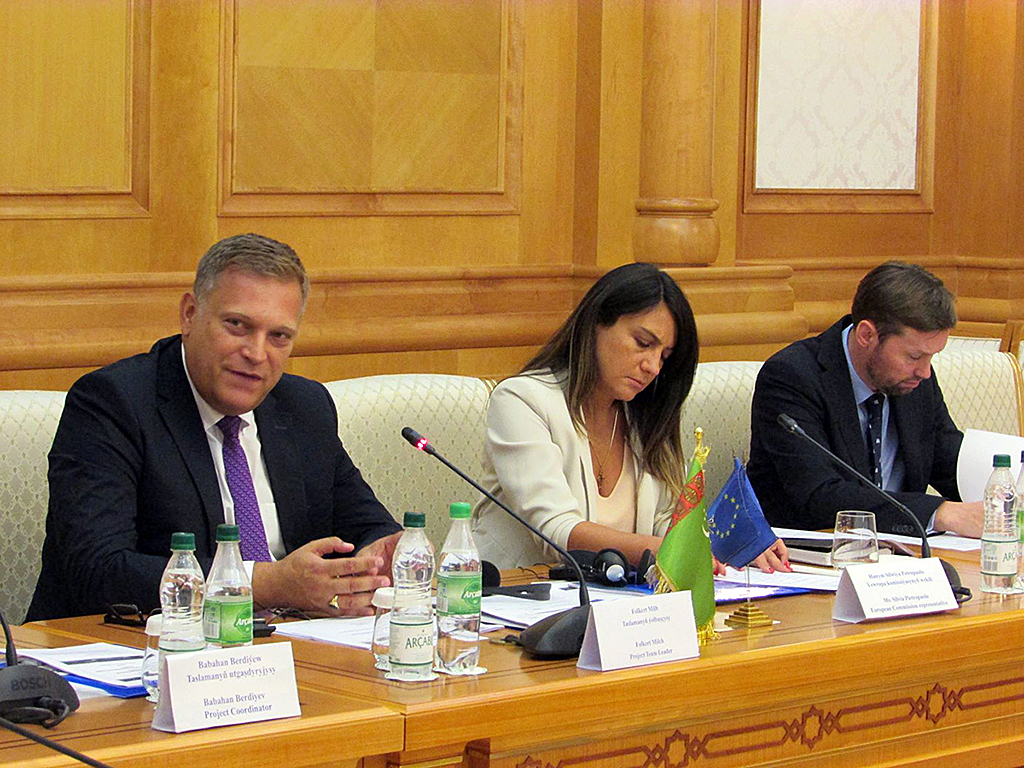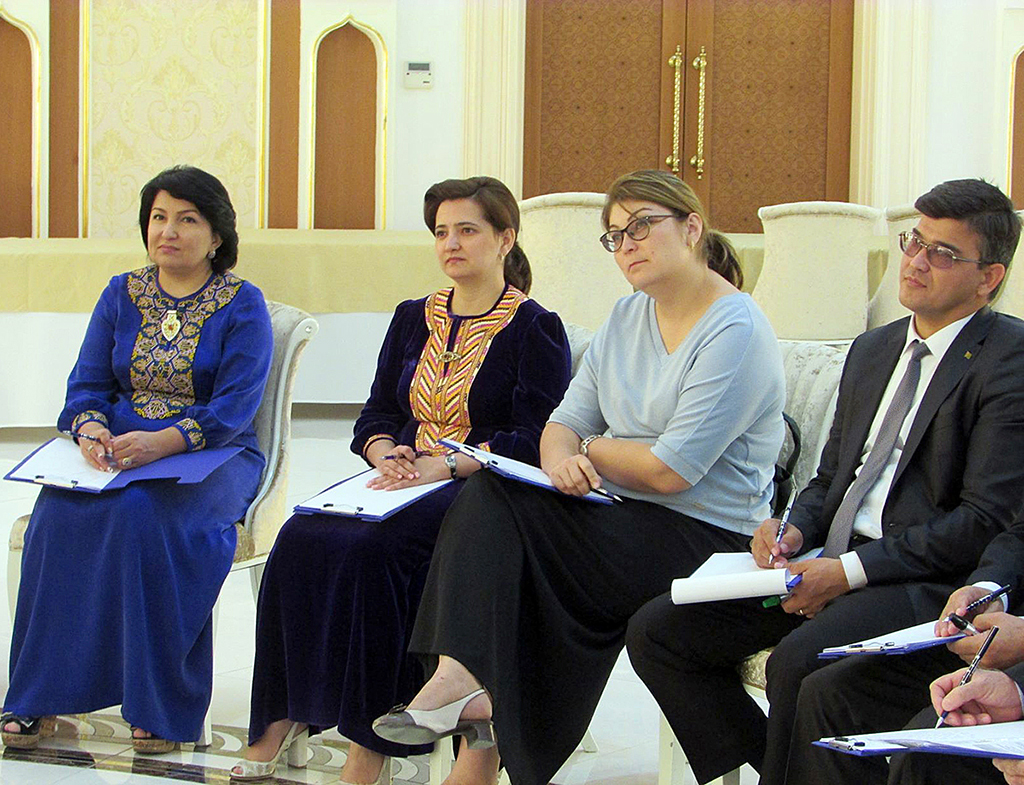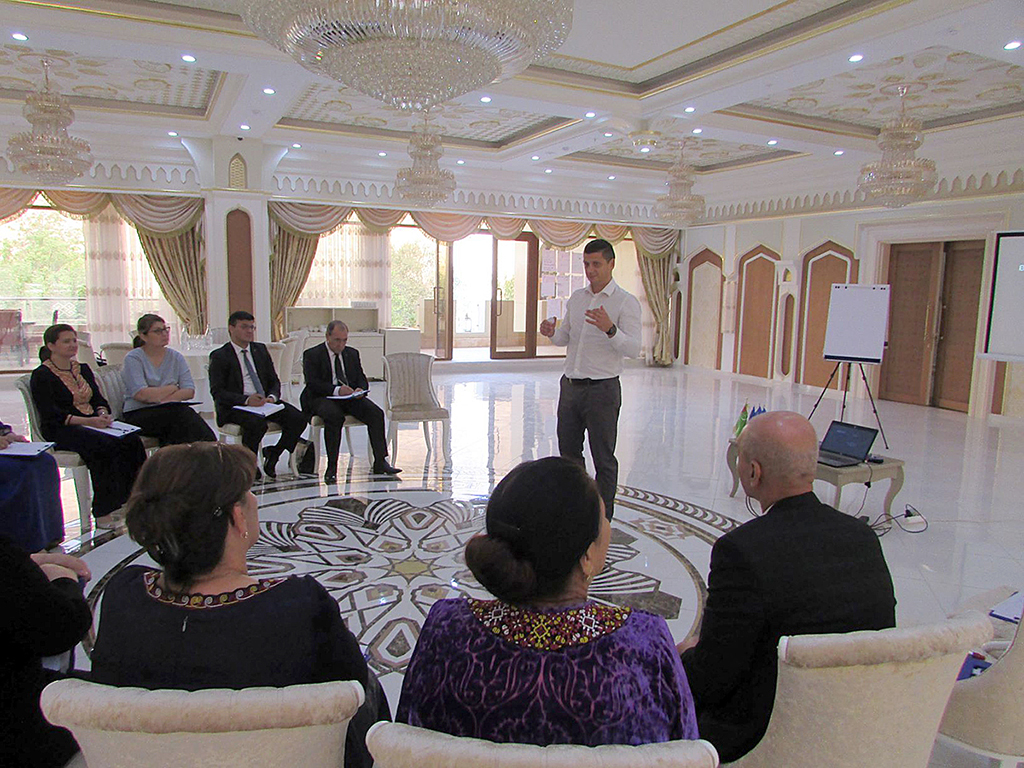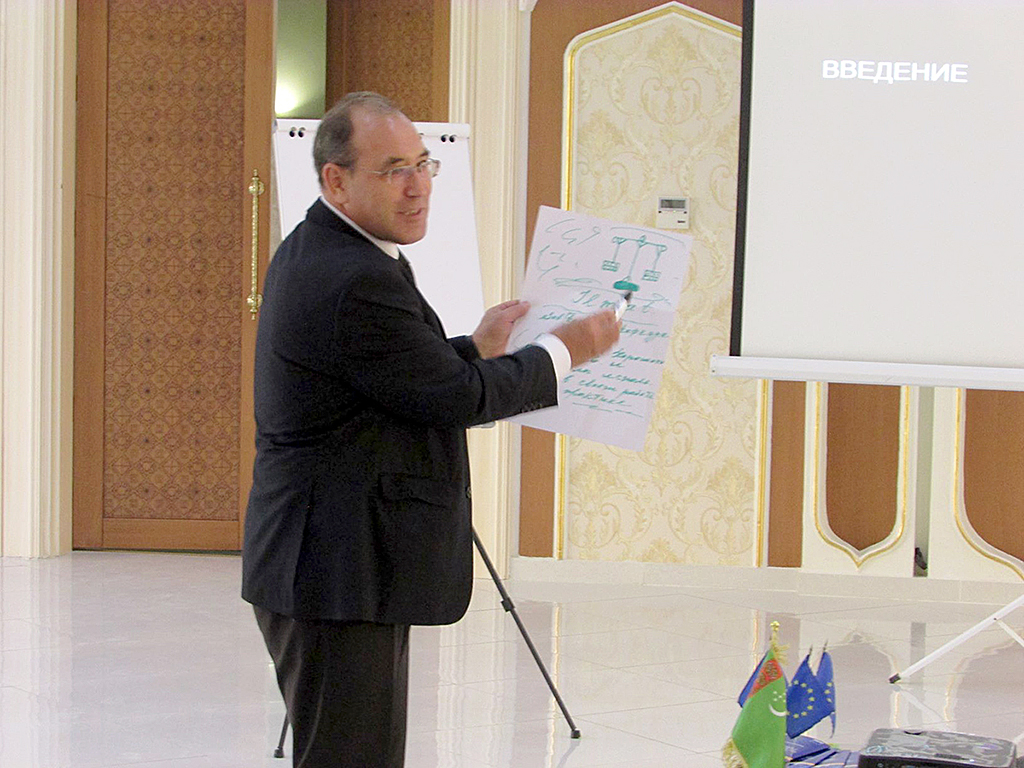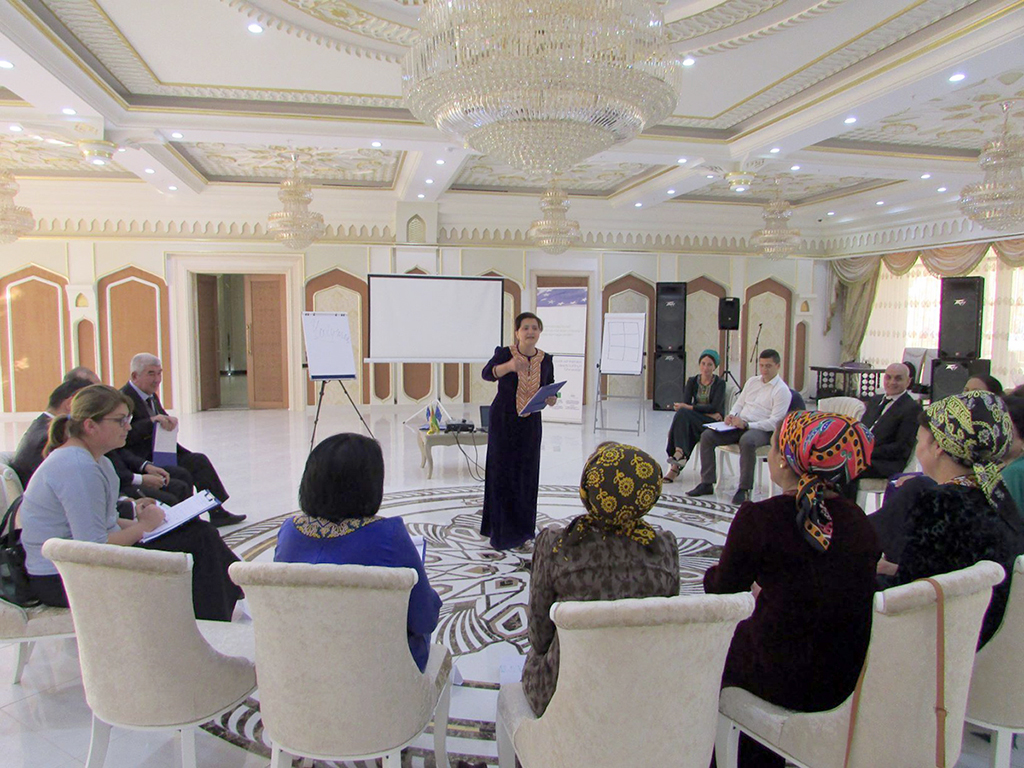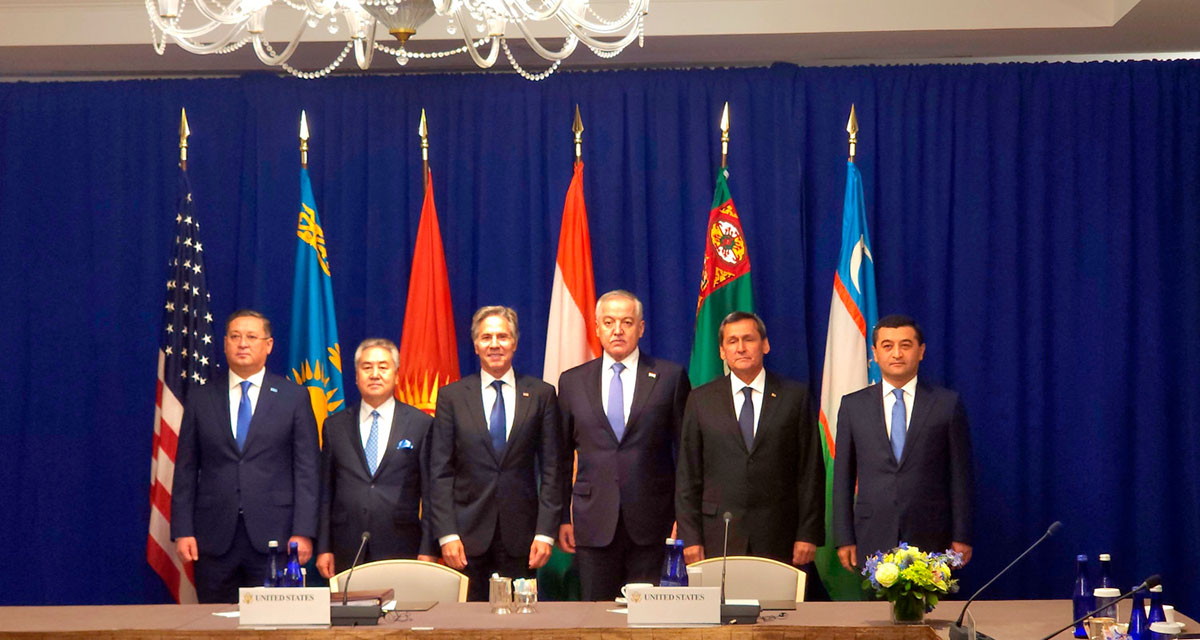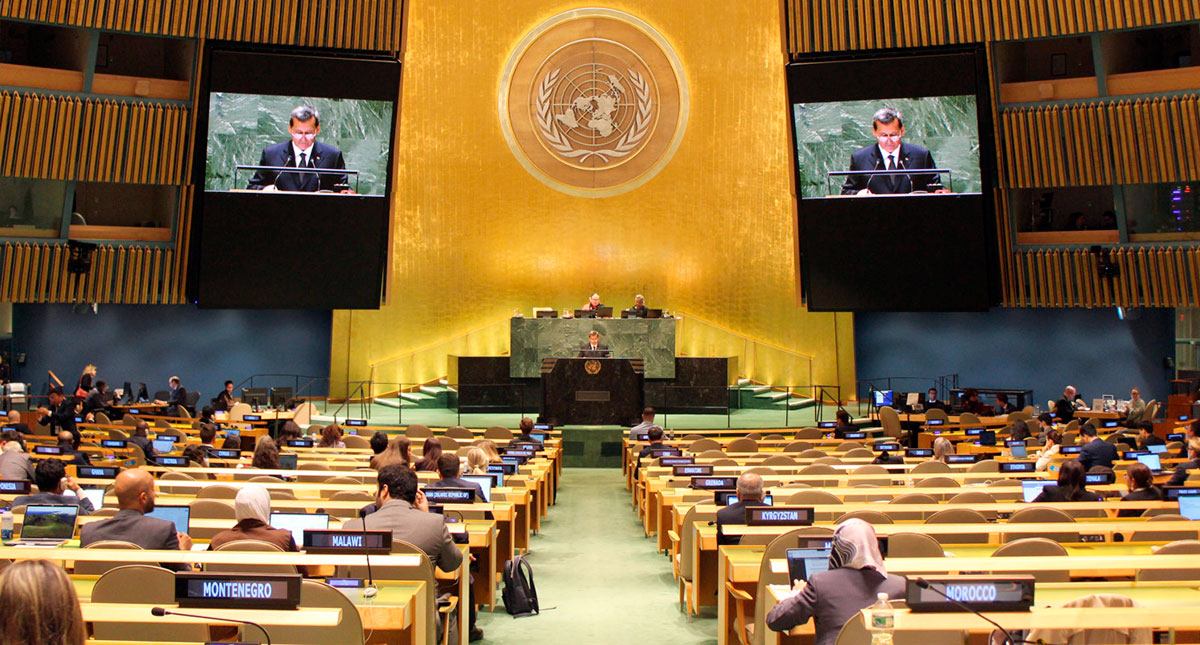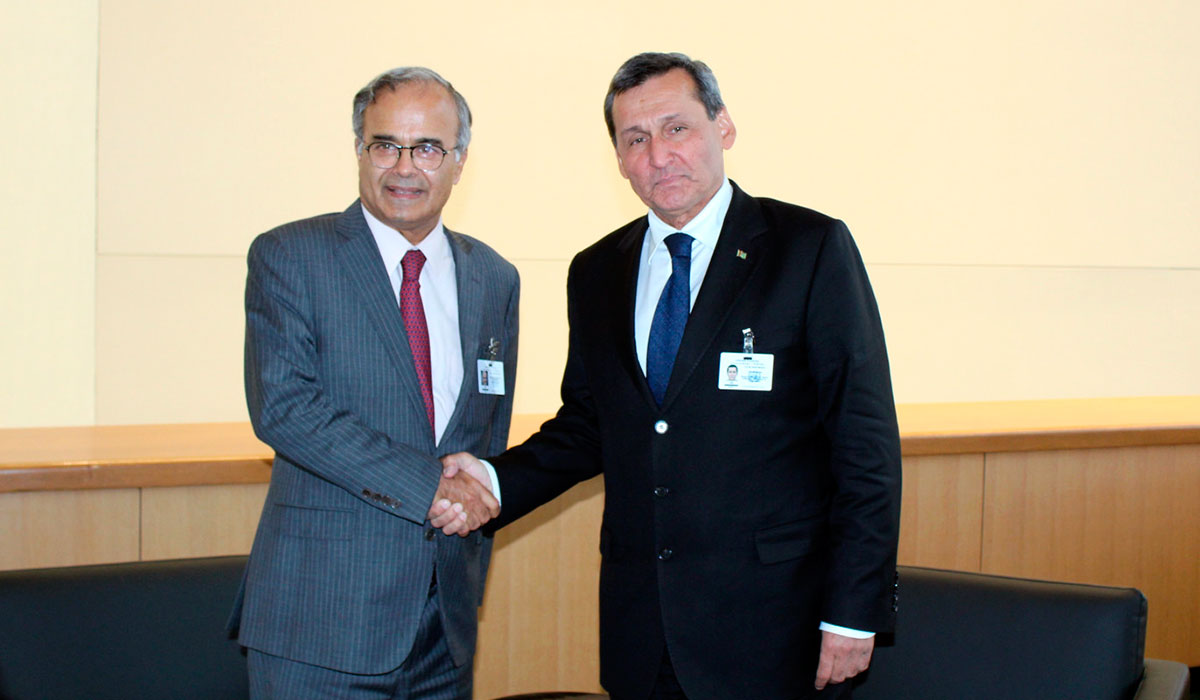The seminar focused on the most popular methods in the system of higher education, including the work in in small groups, role-playing and business simulation games, social projects, brainstorming, case studies, presentations, etc. Their use contributes to the effective understanding of training material, encourages to reveal professional qualities, develop initiativity and communication skills.
As was noted during the training, the competency-based approach aimed at increasing the professional and personal potential of future specialists, and upgrading the teaching methodology lays the foundation of the modern system of higher education. In this context, the role of interactive classes that stimulate creative thinking significantly increases and should make up at least 20-30 percent of the learning process.
The advantages of this format include an active exchange of information that reveals the creative and analytical potential of trainees, the better understanding of the material, the formation of a tolerant approach to the relationships in a team and the promotion of professional growth.
The seminar participants performed an exercise aimed at mastering the algorithm for conducting an interactive session that consists of four interrelated stages of the educational process: the preparatory stage, the introduction, the main part, and summary.
This algorithm is also used in the preparation of lectures and practical exercises. The creative nature of interactive classes positively amends the learning process, since it is oriented, first of all, to interactive communication.
In the final part of the seminar, the participants got acquainted with various forms of discussions as one of the methods of interactive learning that envisages a collective discussion of a particular problem or a comparison of different positions, ideas, opinions and assumptions.
The introduction of interactive teaching methods is one of the most important areas for improving the training and professional development of civil servants in the conditions of innovative development of the country. In this regard, it is important to ensure the transition from informative forms and methods of teaching to active ones, to search for the possibilities of combining theoretical knowledge with practical effect. In this context, the choice of modern educational technologies will help to increase the competence of specialists in various spheres of state activity.




